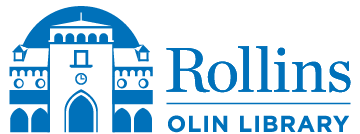Date of Award
2004
Thesis Type
Open Access
Degree Name
Master of Liberal Studies
Advisor(s)
Kathryn Norsworthy
Abstract
Chapter 1 establishes my search for reflections of my identities in the larger culture. I describe my search for recognition in a culture that glorifies the "able" bodied and explore why difference must be explored from multiple contexts.
Chapter 2 describes the methodology I chose for this project and how it reflects the nature of the perspectives I utilize. It explores the difficulties and rewards of autoethnographic work.
Chapter 3 describes the process of identity formation. Since this project views disability as a construct, I must determine which forces create and perpetuate our identity as human beings. I also explore ideas related to the management of multiple identities.
Chapter 4 examines models of disability and the implications of these models for disability scholars and the world at large. I offer my reflections and interpretation of the meaning of disability in my own life.
Chapter 5 explores the process of turning to disability. Instead of keeping disability issues at bay or beneath the surface, I examine how many people with disabilities, including myself, choose to "come out" as disabled and integrate disability as a key form of their personal identity.
Chapter 6 looks at the ways people with disabilities choose to respond to pervasive negative forces, including the structural and the cultural. This chapter also forges connections between disability and the mobilization of other oppressed groups.
Chapter 7 emphasizes the importance of language and other forms of recognition for people with disabilities. This chapter recognizes the ongoing debate over choosing labels and the implications of language and identity.
Chapter 8 describes disability across the lifespan. I outline the theoretical issues occurring at different life stages and recount specific personal experiences relating to my life and my identity.
Chapter 9 enters the terrain of disability and sexuality, a major source of pain and oppression for all people living with a disability. I link ideas related to disability and sexuality to concepts encountered in queer theory and feminist theory.
My conclusion delineates the place of disability within the multicultural arena. I summarize the arguments of multicultural and feminist scholars and note areas where disability does and does not receive adequate coverage. I emphasize the need for continual coverage and research in the area of disability studies because of the profound influence it exerts on my own and others' lives.
Recommended Citation
Coffman, Stacey L., "Disability and Identity" (2004). Master of Liberal Studies Theses. 107.
https://scholarship.rollins.edu/mls/107

